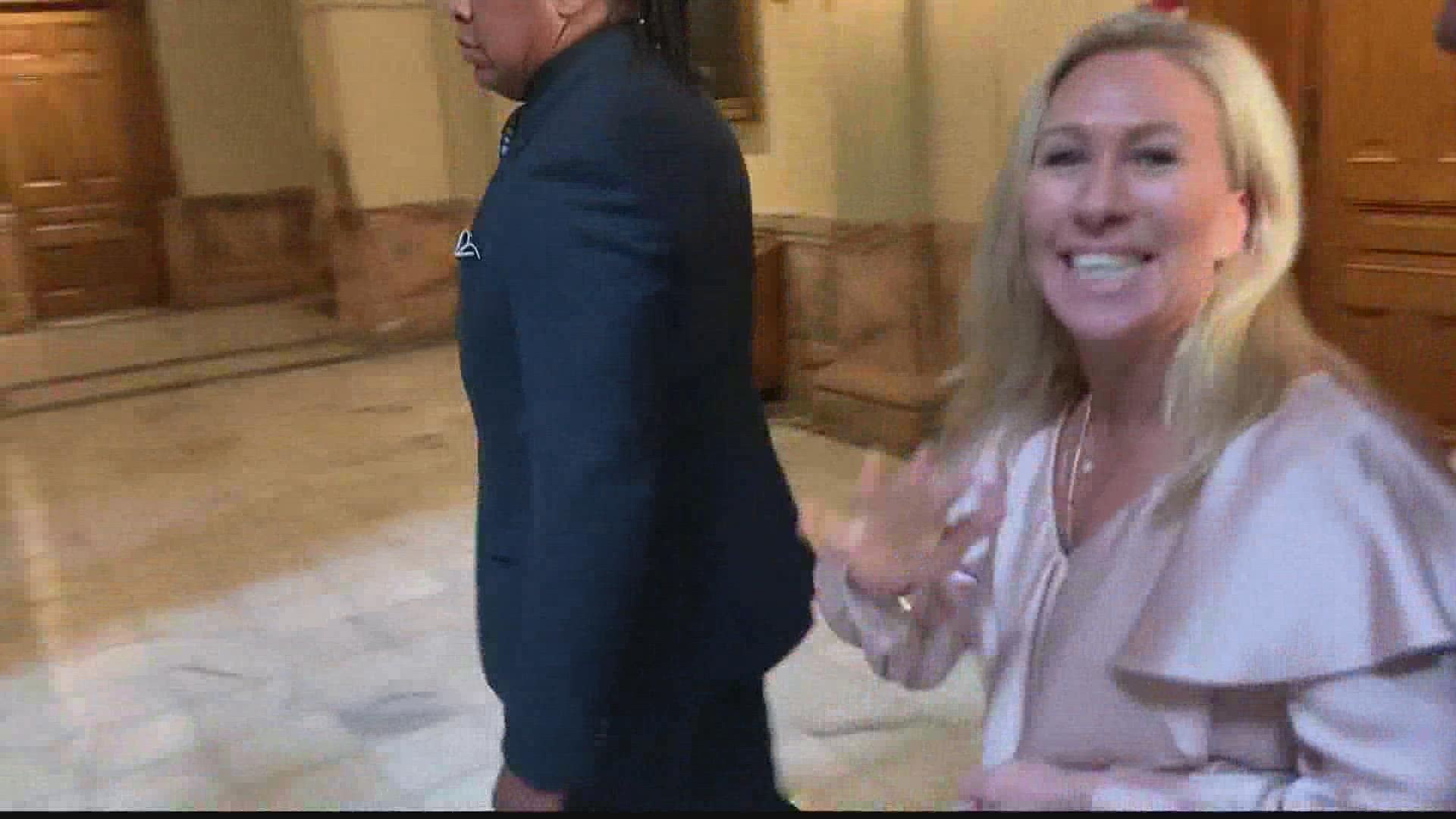ATLANTA — Rep. Marjorie Taylor Greene spent much of Friday testifying in a Georgia courtroom about her role in the Capitol riots on Jan. 6, 2021.
The congresswoman faces a legal challenge against her eligibility for reelection in November, on the grounds that she allegedly helped incite the Jan. 6 riots - making her an insurrectionist ineligible to hold federal office under the 14th Amendment.
The judge who oversaw the proceedings Friday, however, will not have the final say. Here's how things will work.
What happens next?
Judge Charles R. Beaudrot Jr. said at the end of the proceedings on Friday that he will give the parties until next Thursday at midnight to file their follow-up briefings on certain matters the judge wanted more input on. He said though that he hopes they will file them sooner.
"We do need to get this done," he said. "Georgia courts move very fast, we will move very fast.. this is extraordinarily important stuff."
The judge said once the briefings are filed, he would aim to have his findings completed within a week.
His findings, though, are far from the end of the matter.
Who makes the call on Marjorie Taylor Greene's eligibility?
That would be Georgia's secretary of state, currently Brad Raffensperger.
The Republican will make a determination in the case as to whether Greene is qualified or not to be on the ballot. Georgia's primary day is May 24, so he would have to act sometime in advance of then.
According to Georgia State constitutional law professor Anthony Michael Kreis, his options are essentially to determine whether Greene is qualified or disqualified by a preponderance of the evidence that was shown in court on Friday, or he could say he doesn't believe he has the authority himself to make a ruling.
In whatever case, Georgia law then provides for the opportunity to appeal Raffensperger's decision in Fulton County Superior Court.
How would an appeal work?
An appeal must be filed within 10 days of Raffensperger's determination.
At that point, the court may, if it decides, stay his decision "upon appropriate terms for good cause shown."
The court would then conduct a review of the case "without a jury." The court cannot "substitute its judgment" for Raffensperger's on matters of fact, but "may affirm the decision or remand the case for further proceedings."
"The court may reverse or modify the decision if substantial rights of the appellant have been prejudiced," Georgia law states.
It also lays out several situations in which the court may reverse Raffensperger's decision. It would need to be found that his "findings, inferences, conclusions, or decisions" are:
- In violation of the Constitution or laws of this state;
- In excess of the statutory authority of the Secretary of State;
- Made upon unlawful procedures;
- Affected by other errors of law;
- Clearly erroneous in view of the reliable, probative, and substantial evidence on the whole record; or
- Arbitrary or capricious or characterized by an abuse of discretion or a clearly unwarranted exercise of discretion.
Upon the final judgment of Fulton Superior Court, the law then provides for the normal appeal process to the Georgia Court of Appeals and/or then the Georgia Supreme Court.
You can read Georgia's law on this process here.

